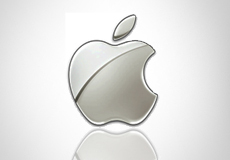Will iBeacon Revolutionize Interactions in the Physical World?
December 13, 2013
Apple’s iBeacon and its Bluetooth Low Energy technology may soon revolutionize the way we interact in the physical world — and it’s already built into most iPhones. The technology is growing as more retail stores install sensors to track shoppers. It is also relatively inexpensive and easy to install. And instead of people having to launch an app or whip out a credit card when they’re out and about, their phones will do it for them — automatically.
Wired says iBeacon is about to “disrupt interaction design,” and it lists four reasons why:
 “The most obvious application for iBeacon is tying digital information to physical places,” the article explains. It notes the technology’s ability to pinpoint exactly where a person is standing within inches, meaning a museum-goer could stand in front of a painting and information about that piece of art would appear instantly on their phone — an example Apple gave over the summer at its WWDC conference.
“The most obvious application for iBeacon is tying digital information to physical places,” the article explains. It notes the technology’s ability to pinpoint exactly where a person is standing within inches, meaning a museum-goer could stand in front of a painting and information about that piece of art would appear instantly on their phone — an example Apple gave over the summer at its WWDC conference.
It could also eliminate the need for constantly entering passwords. The newest Apple TV software does just that already: “You just tap your iPhone to the Apple TV itself, and it passes your Wi-Fi and iTunes credentials over and sets everything up instantaneously,” Wired says.
Retail is the most prominent example of how iBeacon technology is already being used. Stores like Macy’s have sensors throughout many of its locations, but small businesses will be able to benefit from the technology as well: “A $100 beacon is all it takes for even the mustiest book store to track customers, make recommendations, and offer discounts to customers’ pockets,” Wired says, though the article notes retailers shouldn’t abuse this power lest they annoy customers.
Finally, iBeacon technology might even change peer-to-peer interaction. (“Imagine a hook-up app like Tinder for the bar you’re in, with Bluetooth facilitating the flirting before you even say hello.”)
Already, there are nearly 200 million iBeacons in the form of iPhones (from the 4 on), and new Androids have the Bluetooth capabilities as well. There are hurdles, of course: “Developers will have to deal with thorny privacy issues, for one, and corporations will have to resist the urge to bombard us with new hyper-localized notifications with our every step,” the article notes. The iBeacon technology is “a step closer to our gear existing in a truly intelligent ecosystem.”

No Comments Yet
You can be the first to comment!
Leave a comment
You must be logged in to post a comment.